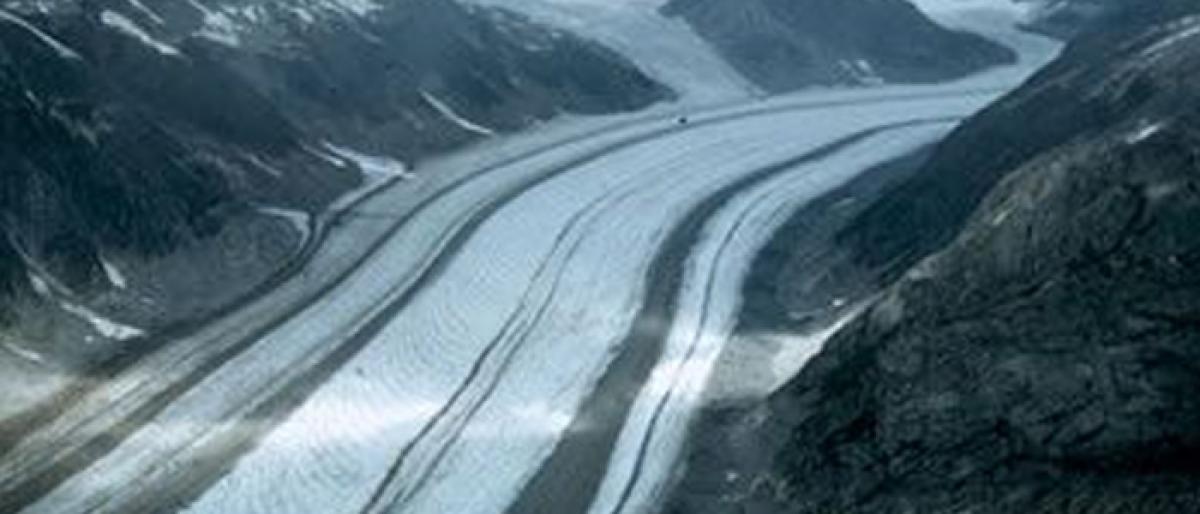What is a glacier?

Glaciers are made up of fallen snow that, over many years, compresses into large, thickened ice masses. Glaciers form when snow remains in one location long enough to transform into ice. What makes glaciers unique is their ability to move. Due to sheer mass,
Glaciers are made up of fallen snow that, over many years, compresses into large, thickened ice masses. Glaciers form when snow remains in one location long enough to transform into ice. What makes glaciers unique is their ability to move. Due to sheer mass, glaciers flow like very slow rivers. Some glaciers are as small as football fields, while others grow to be dozens or even hundreds of kilometers long.
Presently, glaciers occupy about 10 per cent of the world’s total land area, with most located in polar regions like Antarctica, Greenland, and the Canadian Arctic. Glaciers can be thought of as remnants from the last Ice Age, when ice covered nearly 32 percent of the land, and 30 percent of the oceans. Most glaciers lie within mountain ranges that show evidence of a much greater extent during the ice ages of the past two million years, and more recent indications of retreat in the past few centuries.
An Ice Age occurs when cool temperatures endure for extended periods of time, allowing polar ice to advance into lower latitudes. For example, during the last Ice Age, giant glacial ice sheets extended from the poles to cover most of Canada, all of New England, much of the upper Midwestern United States, large areas of Alaska, most of Greenland, Iceland, Svalbard and other Arctic islands, Scandinavia, much of Great Britain and Ireland, and northwestern Russia.
Within the past 750,000 years, scientists know that there have been eight Ice Age cycles, separated by warmer periods called interglacial periods. Currently, the Earth is nearing the end of an interglacial, meaning that another Ice Age is due in a few thousand years. This is part of the normal climate variation cycle. Scientists still have many questions to answer about climate change. Although glaciers change very slowly over long periods, they may provide important global climate change signals.














